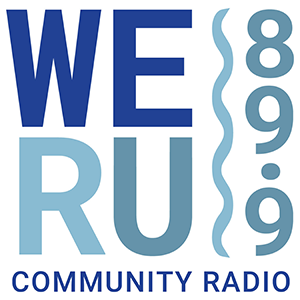Host/Producer: Rhonda Feiman
Co-Producer: Petra Hall
Technical assistance: Joel Mann & Amy Browne
Healthy Options: For Well-being & Being Well
This month:
– What is aging? Why is having a positive view of aging good for our health?
– How can we stay healthy while aging?
– What are “normal” or usual, stages of aging as we get older?
– What is brain plasticity? How does the brain create new pathways and why is that important?
– How are ageism and age-based stereotypes harmful?
– How would we define elder vs. elderly? What is the difference between being an “elder” and being seen as “elderly”?
– Is frailty inevitable?
– What role does attitude and positivity play in staying well?
– How does diet, exercise, creativity and a sense of purpose assist us in aging well?
– What is a “life span” vs. a “health span”? How can the two be combined for better outcomes?
– Why is isolation so detrimental to us? Why is it important to engage with others, and of all ages? Why might helping others be important for our own health?
– Why is learning something new every day important, and why is being in nature good for us?
– Are there risks to taking multiple medications?
– What are the financial and legal aspects of aging well? How do we plan for a successful aging (life) experience?
– Regarding grief: what is natural and expected after losing a loved one or experiencing loss in difficult situations?
– Why is resiliency vital to our well being, no matter our age?
Guest(s):
Marcy Cottrell Houle, MS., wildlife biologist and author of seven books including “The Gift of Caring- Saving our Parents from the Perils of Modern Healthcare”, co-authored with Dr. Elizabeth Eckstrom.
FMI:
In 2016, Rhonda Feiman interviewed Marcy Cottrell Houle, MS., about “The Gift of Caring: Saving Our Parents from the Perils of Modern Healthcare,” about how the current health care delivery model is ill-equipped to provide comprehensive, person-centered care to seniors, and how many treatable conditions and symptoms are dismissed as “just old age.” The discussion highlights specific tools that we can use to help prevent these mistakes and what we need to know to achieve healthy aging.
archives.weru.org/heal
www.thegiftofcaring.net
Healthy Options 3/6/24: Advocating for the care needs & rights of elders in nursing homes & assisted living facilities
Elder Advocate Jack Halpern, founder and chairman of MyElder.
archives.weru.org/heal
Healthy Options 12/6/23: Brain Health and Aging Well: Interview with Susan Wehry, M.D., geriatric psychiatrist and director of AgingME
archives.weru.org/heal
www.susanwehrymd.com
agingme.org
About the host:
Rhonda Feiman is a nationally-certified, licensed acupuncturist practicing in Belfast, Maine since 1993. She primarily practices Toyohari Japanese acupuncture, using gentle and powerful non-insertion needle techniques, and also utilizes Chinese acupuncture and herbology. In addition, Rhonda is a practitioner of Qi Gong and an instructor of Tai Chi Chuan in the Yang Family tradition.
Podcast: Play in new window | Download



 Donate to WERU Today!
Donate to WERU Today!